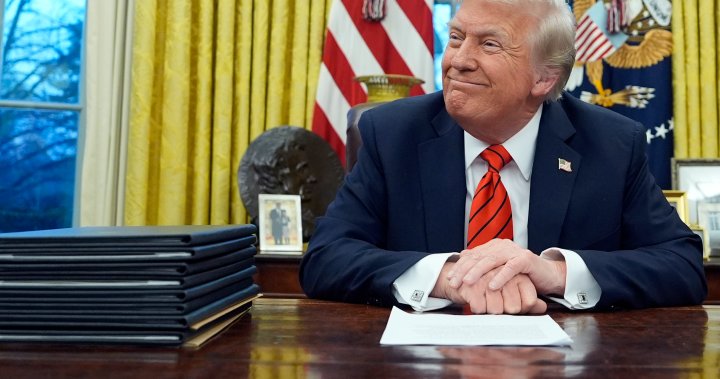- cross-posted to:
- [email protected]
- cross-posted to:
- [email protected]
Summary
Donald Trump warned he may impose tariffs of 50 to 100% on Canadian-made cars, claiming Canada “stole” the U.S. auto industry.
The U.S. and Canada have had a deeply integrated automotive sector since the 1965 Auto Pact, later reinforced by NAFTA and CUSMA.
Trump also enacted 25% tariffs on steel and aluminum to protect U.S. industries.
Canadian Prime Minister Justin Trudeau vowed to push back, with Finance Minister Dominic LeBlanc traveling to Washington to meet Trump’s commerce pick and argue against the tariffs.



I get how shitty it would be for Canadian exports that have the tariff applied to them, but would it help some items become cheaper in Canada?
Now I understand that we do not do the final assembly or finishing on a lot of what is sent, but would we see it drive local prices down or would business try to justify higher prices to offset their loss (you know because it is the law of the universe that profits must always go up).
In the big picture, we stop shipping oil, we stop sending electricity and cars and or parts, keep food items here, in the long run would things become cheaper while we are looking for new markets to sell to, or while we are building our own systems to finish items where practical?
We as a nation cannot let that dumbfuck control our economy, every time it happens we say, “oh we need to diversify” and yet we never do because the US usually smartens up and sees us as an alie not an adversary, but I wouldn’t count on that fron the US for quite some time as the government hasn’t been sold to the tech douche bros and corrupt Republicans (or repugnicans).
You might see short term savings on some things during the economic turbulence, but overall it will make things more expensive in the short and long term.
For things that Canada is a net exporter of, like Canola, you might see a sudden oversupply when exports stop, and then cheaper products. In the long term, farms will adjust or go out of business. The expenses that come along with that wind up on the consumer eventually.
For manufactured items, if a business is shifting to solely domestic markets, they lose a lot of economies of scale which again increases costs.
Overall, free trade is a mixed bag. It ultimately saves consumers money, but leads to larger multinational businesses and reduced national autonomy.
Unwinding free trade gives up the reduced costs and costs a lot of money in retooling and reestablishing supply chains etc.